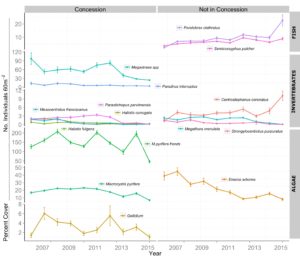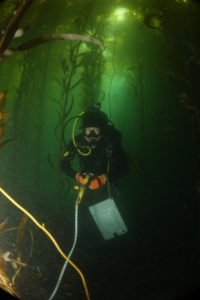Ecological monitoring (fish, invertebrates, algae)
Warming events can have especially large ecosystem effects when they impact foundation species such as the giant kelp, Macrocystis pyrifera. In the eastern Pacific Ocean, recent warming events (the warm-water anomaly of 2013/14, and the extreme ENSO of 2015/16) have resulted in shifts in the abundance and distribution of multiple species, with winners and losers, and consequent impacts on fisheries and ecosystem function of both open ocean and coastal ecosystems.
How entire ecosystems respond to environmental stressors is essential for designing effective management and policy actions. Long-term ecological studies provide key insights into such responses, and contribute disproportionally to our understanding of how ecosystems respond to environmental forcing and human use.
One of the main goals of our community monitoring program is quantify change in functional groups of kelp-associated species and inform:
- How does the abundance of key functional groups vary through time
- Are these patterns consistent geographically?
- Can these ecosystem characterization inform fisheries and management?



